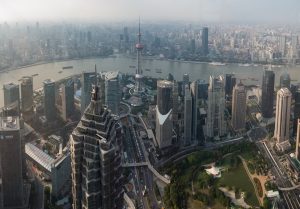
December 7, 2021, by lzzeb
Exploring the geographies of cosmopolitanism
A blog by James Beardsmore
In this short blog, I want to provide some of my thoughts on my research to date as I prepare for the next phase of data collection. My research focuses on the relationship between cosmopolitanism and international finance, in particular how cosmopolitanism is acquired and mobilised by individuals who work within international financial centres (IFCs).
Cosmopolitanism is an abstract concept that is used flexibly across different fields. For my research, I have borrowed Beck (2006) definition of cosmopolitanism.
Cosmopolitanism is in its broadest sense conceptualised in this paper as an openness to the foreign and others.
My research operationalises cosmopolitanism through Bourdieu (1990) theories of capital and habitus as a form of ‘cultural capital’ that can provide individuals with a dominant position in transnational and highly globalised labour markets. Cosmopolitanism (openness to the foreign and others) can be more simply be understood as a form of unconscious social practice reflected in an individual’s values, speech, dress, conduct, and manners.
For my research project, I wanted to explore the relationship between two cosmopolitan sites British Universities and International financial centres (IFCs). Specifically asking the question of how British Universities reproduced cosmopolitanism and how that cosmopolitanism is deployed by individuals working within IFCs. Within global geographies western universities, particularly those located within the USA, UK, Australia and Canada are often cited as distinctive sites of cosmopolitan reproduction due to their national diversity, student diversity, geographics and positionality near-global cities and English languages context (Igarashi and Saito 2014). The higher education systems of each country receive huge inflows of international student mobilities. The figures from 2019 study by Project Atlas, the last full year enrolment before Covid -19 showed 1,095,299 studying in the USA, UK 496,570, Canada, 435,415 and Australia 420,501. Here it is also important to note the huge growth of China as a recipient of international student mobilities, home to the third-highest number in 2019, at 492,185.
IFCs represent another distinctive site of cosmopolitanism, the banking, accounting, legal and financial firms within them hosting multinational teams that navigate global markets, facilitate transactions and serve as the pipelines of global finance capitalism. IFCs are located in global cities such as Tokyo, New York, London, Paris, Los Angeles, Hong Kong, Singapore and Sydney, and rising cities such as Beijing, Mumbai, Moscow, Sao Paulo, Johannesburg, Buenos Aires, Kuala Lumpur and Shanghai . It is within this highly specialised elite labour markets evidence suggest cosmopolitanism acquired through international student mobility can be operationalised to gain positional advantage and employment opportunities.
To explore this, for the first part of my research I undertook a thematic analysis of 11 university strategy documents from London based universities to see how cosmopolitism is conceived of and thus reproduced for students undertaking study. London was chosen due to being the recipient of a large number of international students and being home to a significant IFC. The analysis indicated that cosmopolitanism was evident in all strategies and that conceptions could be broadly divided into two broad stances, intellectual and aesthetic.
Dominant intellectual conceptions of cosmopolitanism were concerned with social justice and tackling global challenges through global citizenship programmes. Aesthetic conceptions were focused on developing global skills and networks, realised through placement opportunities and frameworks setting out graduate attributes/outcomes.
This first phase of research revealed some interesting tensions between reproduction of aesthetic cosmopolitism e.g., graduate attributes, placement opportunities, global skills that would appear to have more utility with IFC labour markets and those situated within a more Intellectual stance.
Going forward, for the next stage of my research I am seeking to further explore cosmopolitan reproduction and how it can operate as a ‘cultural capital’ and a social practice within the geographies of IFCs. To do this I am undertaking interviews with university employability teams, lecturers, and international graduates of British universities now working in IFCs. I aim to not only advance understandings of how cosmopolitanism operates within specific elite labour markets of IFCs, but to also perceive what a cosmopolitan pedagogy may look like.
References
Beck, U. 2006. The Cosmopolitan Vision. Cambridge, MA: Polity Press.
Bourdieu, P. 1990. The Logic of Practice. Stanford, CA: Stanford University Press.
No comments yet, fill out a comment to be the first



Leave a Reply